
United Nations Security Council Resolution 989, adopted unanimously on 24 April 1995, after recalling Resolution 955 (1994), the council listed the nominations for judges at the International Criminal Tribunal for Rwanda.

United Nations Security Council resolution 1053, adopted unanimously on 23 April 1996, after recalling all previous resolutions on Rwanda, particularly resolutions 918 (1994), 997 (1995), 1011 (1995) and 1013 (1995), the Council reviewed the findings of the Commission of Inquiry concerning violations of the arms embargo against former Rwandan government forces.

United Nations Security Council resolution 1234, adopted unanimously on 9 April 1999, after expressing concern at the situation in the Democratic Republic of the Congo, the Council demanded an immediate halt to hostilities in the region, a withdrawal of foreign forces and the re-establishment of the government's authority.

United Nations Security Council resolution 1304, adopted unanimously on 16 June 2000, after recalling resolutions 1234 (1999), 1258 (1999), 1273 (1999), 1279 (1999), 1291 (1999) and 1296 (2000) on situation in the Democratic Republic of the Congo, the Council demanded the immediate withdrawal of Ugandan, Rwandan, Congolese opposition and other armed groups from Kisangani in the Democratic Republic of the Congo.
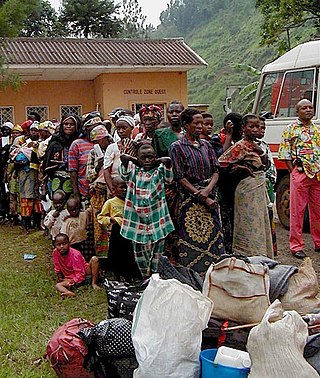
United Nations Security Council resolution 1332, adopted unanimously on 14 December 2000, after recalling resolutions 1234 (1999), 1258 (1999), 1265 (1999), 1273 (1999), 1279 (1999), 1291 (2000), 1296 (2000), 1304 (2000) and 1323 (2000) on situation in the Democratic Republic of the Congo, the Council extended the mandate of the United Nations Mission in the Democratic Republic of Congo (MONUC) until 15 June 2001.

United Nations Security Council resolution 1341, adopted unanimously on 22 February 2001, after recalling resolutions 1234 (1999), 1258 (1999), 1265 (1999), 1273 (1999), 1279 (1999), 1291 (2000), 1296 (2000), 1304 (2000), 1323 (2000) and 1332 (2000) on situation in the Democratic Republic of the Congo, the Council demanded that all parties to the conflict in the country implement disengagement plans and adopt withdrawal plans for foreign troops by 15 May 2001.
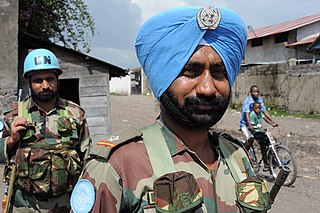
United Nations Security Council resolution 1445 was adopted unanimously on 4 December 2002. After recalling all previous resolutions on situation in the Democratic Republic of the Congo, the council expanded the military component of the United Nations Mission in the Democratic Republic of Congo (MONUC) to a level of 8,700 military personnel–up from 4,250–in two task forces.

United Nations Security Council resolution 1449, adopted unanimously on 13 December 2002, after recalling resolutions 955 (1994), 1165 (1998), 1329 (2000), 1411 (2002) and 1431 (2002), the Council forwarded a list of nominees for permanent judges at the International Criminal Tribunal for Rwanda (ICTR) to the General Assembly for consideration.
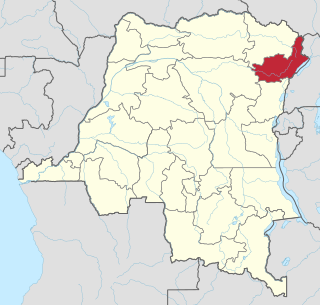
United Nations Security Council resolution 1468, adopted unanimously on 20 March 2003, after recalling previous resolutions on the situation in the Democratic Republic of the Congo, the Council welcomed an agreement on the establishment of a transitional government and requested an increased presence of the United Nations Mission in the Democratic Republic of Congo (MONUC) in the Ituri region in the east of the country amid escalating violence.

United Nations Security Council resolution 1477, adopted unanimously on 29 April 2003, after recalling resolutions 955 (1994), 1165 (1998), 1329 (2000), 1411 (2002) and 1431 (2002), the Council forwarded a list of nominees for permanent judges at the International Criminal Tribunal for Rwanda (ICTR) to the General Assembly for consideration.

The 2012 United Nations Security Council election was held on 18 October 2012 during the 67th session of the United Nations General Assembly, held at the Headquarters of the United Nations in New York City. The elections were for five non-permanent seats on the UN Security Council for two-year mandates commencing on 1 January 2013 to replace the five countries whose terms expired. The countries elected were Argentina, Australia, Luxembourg, the Republic of Korea, and Rwanda with Luxembourg being elected for the first time.
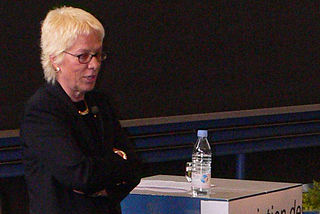
United Nations Security Council resolution 1503, adopted unanimously on 28 August 2003, after recalling resolutions 827 (1993), 955 (1994), 978 (1995), 1165 (1998), 1166 (1998), 1329 (2000), 1411 (2002), 1431 (2002) and 1481 (2003), the Council decided to split the prosecutorial duties of the International Criminal Tribunal for the former Yugoslavia (ICTY) and the International Criminal Tribunal for Rwanda (ICTR) which had previously been under the responsibility of one official, Carla Del Ponte, since 1999.

United Nations Security Council resolution 1534, adopted unanimously on 26 March 2004, after recalling resolutions 827 (1993), 955 (1994), 978 (1995), 1165 (1998), 1166 (1998), 1329 (2000), 1411 (2002), 1431 (2002) and 1481 (2003), the Council called on the International Criminal Tribunal for the former Yugoslavia (ICTY) and the International Criminal Tribunal for Rwanda (ICTR) to complete all trial activities by the end of 2008.

United Nations Security Council Resolution 1592, adopted unanimously on 30 March 2005, after recalling all previous resolutions on the situation in the Democratic Republic of the Congo, including Resolution 1565 (2004), the Council extended the mandate of the United Nations Mission in the Democratic Republic of Congo (MONUC) until 1 October 2005.

United Nations Security Council Resolution 1649, adopted unanimously on 21 December 2005, after recalling all previous resolutions on the situation in the Democratic Republic of the Congo, including resolutions 1533 (2004), 1565 (2004), 1592 (2005), 1596 (2005) and 1616 (2005), 1621 (2005) and 1628 (2005), the council extended and expanded sanctions against the country until 31 July 2006, and demanded that foreign fighters disarm or face sanctions.
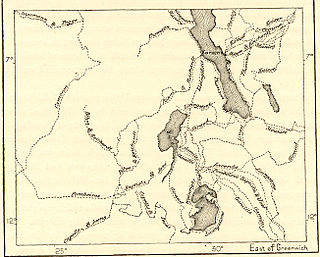
United Nations Security Council Resolution 1653, adopted unanimously on January 27, 2006, after recalling previous resolutions concerning the situations in the African Great Lakes region, Democratic Republic of the Congo and Burundi, particularly resolutions 1625 (2005), 1631 (2005), 1649 (2005) and 1650 (2005), the Council addressed the stability of the Great Lakes region in Africa.

United Nations Security Council Resolution 1991, adopted unanimously on June 28, 2011, after reaffirming previous resolutions on the situation in the Democratic Republic of the Congo, the Council extended the mandate of the United Nations Organization Stabilization Mission in the Democratic Republic of the Congo (MONUSCO) until June 30, 2012.

United Nations Security Council Resolution 1717 was adopted unanimously on October 13, 2006; after recalling resolutions 955 (1995), 1165 (1998), 1329 (2000), 1411 (2002), 1431 (2002), 1449 (2002), 1503 (2003) and 1534 (2004) on Rwanda, the Council extended the terms of temporary judges at the International Criminal Tribunal for Rwanda (ICTR).
United Nations Security Council Resolution 1794 was unanimously adopted on 21 December 2007.
United Nations Security Council Resolution 1823 was unanimously adopted on 10 July 2008.
















